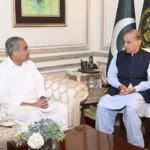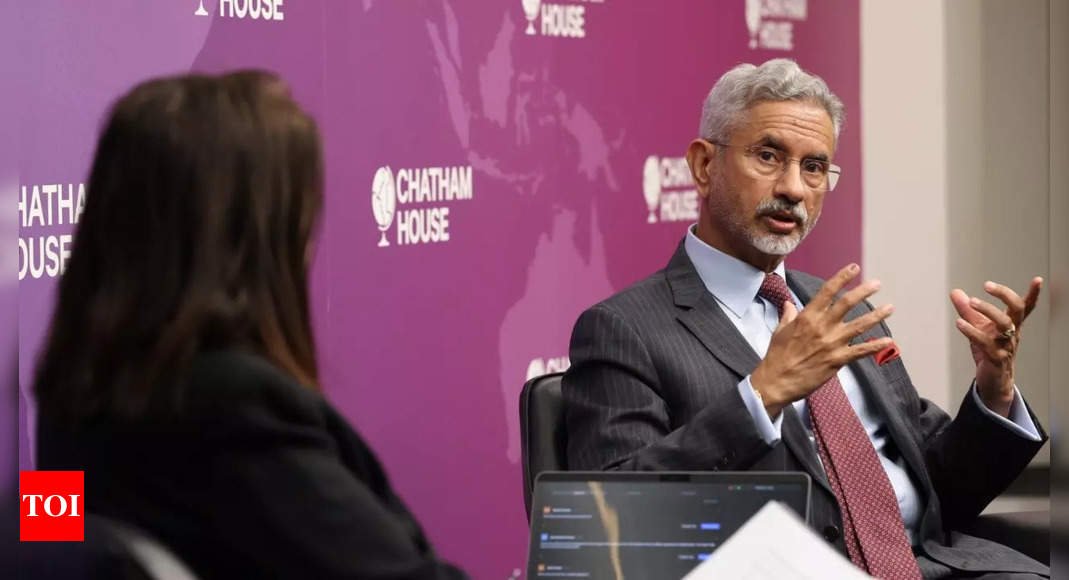Nueva Delhi: External Affairs Minister, S Jaishankar, said Thursday that he had an open conversation with the Minister of Commerce and Industry, Piyush Goyal, who is in the United States to discuss a bilateral commercial agreement, on the rate and added that the administration of the United States is moving towards multipolarity, which adapts to the interests of India.
This occurred after the president of the United States, Donald Trump, announced his plan to impose reciprocal tariffs of April 2.
During a session entitled ‘The ascent and role of India in the world’ in the group of experts of Chatham House in London on Wednesday night, Jaishankar said: “We see a president and an administration that, in our language, is moving towards multipolarity and that is something that adapts to India.”
On the specific issue of tariffs, the minister said Piyush Goyal is currently in Washington to discuss a bilateral commercial pact, after discussions between Prime Minister Narendra Modi and Trump in the White House last month.
“We had a very open conversation about it (rates) and the result of that conversation was that we agreed to the need for a bilateral commercial agreement,” he said when asked about Trump tariff warnings.
Trump hits duty In India
The president of the United States, Trump announced Wednesday that retaliation tariffs would begin from April 2 against India that impose higher tariffs on American imports.
During his speech before the United States Congress, Trump criticized the tariffs imposed by India and other nations, including China, labeling them as “very unfair.”
Trump expressed his intention to implement tariffs equivalent to foreign imports as these nations impose US exports.
“Other countries have used tariffs against us for decades and now it is our turn to start using them against those other countries. On average, the European Union, China, Brazil, India, Mexico and Canada, have you heard of them, and innumerable other nations charge us tremendously higher tariff The Congress.
“India charges US cars rates greater than 100 percent,” he said.
In his first direction of his second term of the White House, Trump said: “China’s average rate on our products is twice … and the average southern Korea rate is four times greater. Think about that, four times higher. And we give it a lot of help militarily and in many other ways to South Korea. But that is what happens. This is happening by a friend and Foe. This system is not fair to the United States.
‘India charges a lot’
Donald Trump reaffirmed in December about his plan to implement reciprocal fiscal policies towards India. Previously after having labeled India as “Rey Tarifa”, he criticized New Delhi for imposing “tariffs” to products made in the United States.
“Reciprocal. If they tax us, I imposed the same amount. We impose ourselves. We join. And they take advantage of us. Almost in all cases, they are taxing us, and we have not been taxing them,” said the president-elect during a press conference in Mar-A-Lago.
He elaborated even more: “The reciprocal word is important because if someone charges us – India, we do not have to talk about ours – if India charges us 100 percent, do we not charge anything for the same thing? You know, they send us a bicycle and we send them a bicycle. They charge us 100 and 200. India charges a lot. Brazil loads them a lot. If they want to charge us, but we are fine, but we are fine, but we are fine, but we are fine, but we are fine, but we are well, but we are fine, but we are fine, but we are fine, but we are fine, but we are fine, but we are fine, but we are fine, but we are fine, but we are fine, but we are fine, but we are fine, but we are fine, but we are fine, but we are fine, but we are fine, but we are fine, but we are fine, but we are fine, but we are fine, but we are fine, but we are fine, but we are fine, but we are fine, but we are fine, but we are fine, but we are fine, but we are fine, but we are fine, but we are fine, but we are fine, but we are fine.




